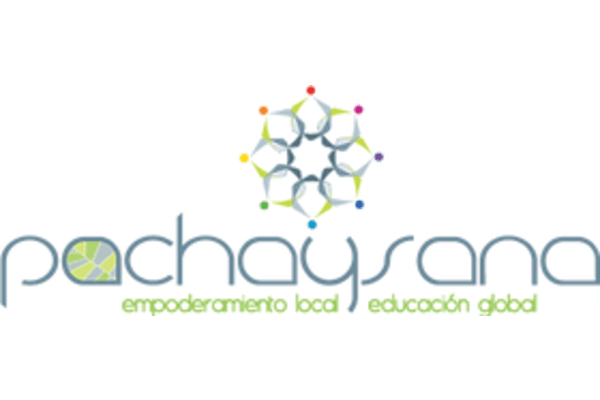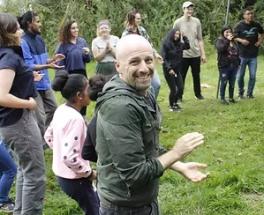
Join "Embodying 'Unlearning': A theatre and social change workshop" on Wednesday, October 26th, 11 AM - 1 PM at the Barnett Center Collaboratory (141 Sullivant Hall).
About the workshop
How do we unlearn the dominant stories of oppression, colonialism, and modernity? Stories are how we make sense of who we are and who we want to become. Yet, our bodies and minds have become accustomed to living stories founded on oppression, colonialism, and modernity.
Following the Re-storying All Our Relations: A puppet-making workshop on epistemic justice, this second session will explore Pachaysana Institute’s unlearning methods, using theatre-based activities to identify and unlearn unjust stories that have shaped our world and bodies.
About our guest speaker
Daniel Bryan, Executive Director and Instructor, Pachaysana Institute

An educator, activist and artist, Daniel specializes in the use of participatory theatre as a means of education and conflict transformation. Originally from the United States, he has lived the last 22 years in Ecuador, where he has worked with Indigenous and other frontline communities in both rural and urban sectors. In addition to teaching regularly in Pachaysana’s Rehearsing Change program, he is an active scholar-practitioner of Participatory Action Research, for which he applies a narrative/arts-based approach to co-generating knowledge with local communities.
In addition to his work in Ecuador, he regularly lectures and leads workshops at universities across the United States, most often focusing on Unlearning, Decolonizing Methodologies/Pedagogy, Epistemological Pluralism and Theatre for Social Change. He has been a visiting professor, lecturer and scholar-in-residence at several institutions, most recently as a Visiting Professor and Baker Fellow in Peace and Conflict Studies at Juniata College, Instructor in Graduate Education Studies at Providence College and a Maxwell Scholar at Washington and Jefferson College. He also regularly teaches at the University San Francisco de Quito. Previously he co-founded the internationally renowned cultural educational organization, Fundación Quito Eterno, and lectured/researched under a Fulbright Scholar Grant in Quito. He holds an MA in Education from the University of Tulsa and an MFA in Theatre from UCLA.
For more information about the Pachaysana Institute and their study abroad programs, join the OIA Study Abroad Pachaysana Info Session on Tuesday, October 25th, 4 PM - 5 PM.
This event is co-sponsored by the Pachaysana Institute, The K’acha Willaykuna Andean and Amazonian Indigenous Arts and Humanities Collaboration, the Center for Latin American Studies, the Department of Spanish & Portuguese, and the Barnett Center for Integrated Arts and Enterprise. CLAS contributions are made possible through Title VI funding from the US Department of Education.
